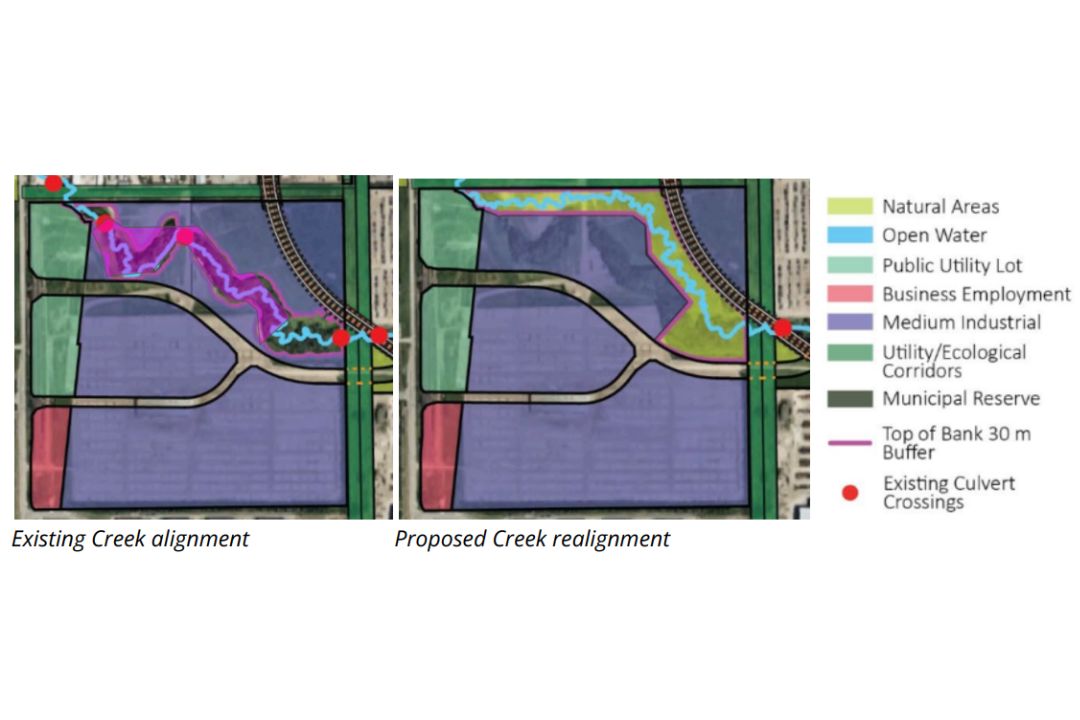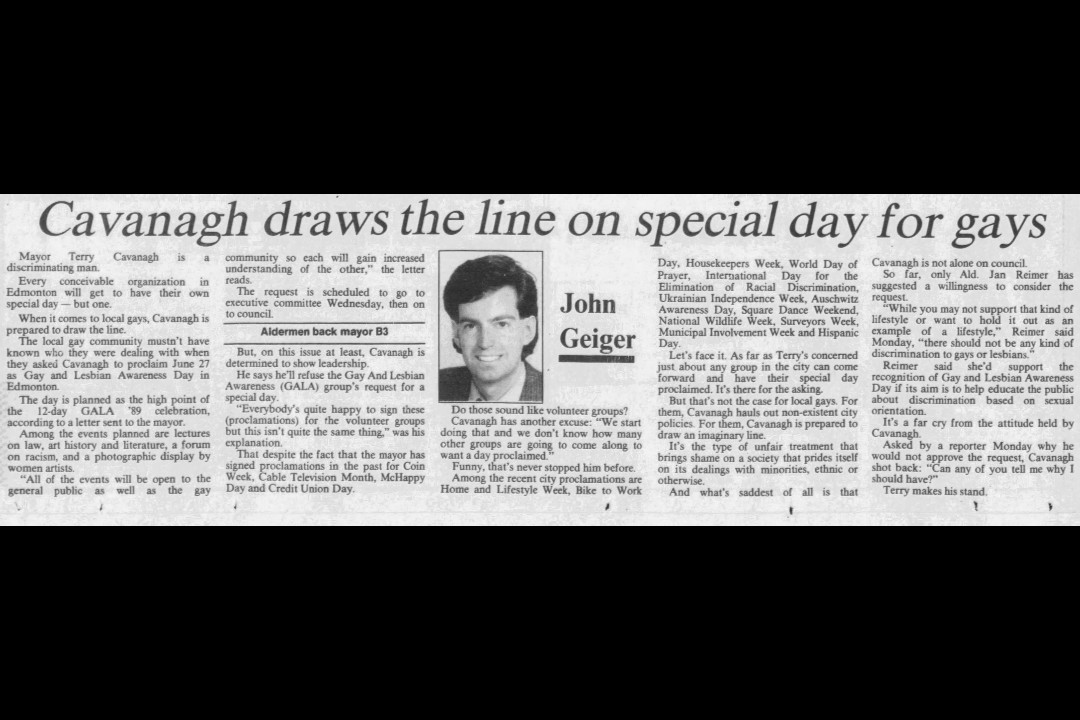
Business park proposes relocating creek and downing 6,900 trees to expand
The Fulton Creek Business Park in southeast Edmonton has requested a rezoning to expand its footprint that would require a creek to be relocated and the loss of 6,900 mature trees.
City administration supports the business park's application to rezone natural land for industrial purposes in order to create a more contiguous land parcel. That application is scheduled to be debated at a public hearing on April 28, and is among the first steps required to relocate the creek. If approved, the applicant will need to apply to the province to relocate the creek.
The relocation "poses considerable ecological risks," according a report from city administration, and would clear 5.38 hectares of the North Saskatchewan River Valley and Ravine System that acts as wildlife habitat and a carbon sink. The applicant would plant approximately 6,000 new trees where the creek is proposed to be relocated, but city administration said it would take decades for the new area to reach the same level of ecosystem functioning. This project would hinder the city's goal of carbon neutrality by 2050, the city report said.
Administration said it supports the application because it would create a larger, more contiguous land parcel, which is in line with the city's Industrial Action Plan. Relocating the creek would grow the space the applicant can build on, increasing potential building footprints from a maximum of 50,000 square feet to 347,500 square feet. The application said that administration is taking a more active role in maintaining industrial land supply and is discouraging using industrial land for non-industrial uses. However, earlier this year, administration supported rezoning what it described as a "highly valuable," 14-hectare parcel of land for a high school, mosque, recreation centre, and business complex.
The application explains how the business park engaged with First Nations. The provincial Aboriginal Consultation Office directed the applicant to consult with the Paul First Nation and Enoch Cree Nation, both located west of Edmonton. The business park also contacted 31 First Nations to provide project information. Six nations asked how they could be involved and/or expressed concerns about the project. Representatives from the business park held three site visits with Paul First Nation as well as the Blood Tribe and Siksika Nations, both of which are located in southern Alberta. The application said no First Nations have opposed the project and the Paul and Siksika Nations have written non-objection letters.
The River Valley Alliance, a not-for-profit made up of the six municipalities that border the North Saskatchewan River in the Edmonton region, said it supports the project. The alliance said it is excited about new trails that are planned for the relocated creek. Sierra Club Canada, an environmental conservation group, said it did not support relocating the creek. The Edmonton River Valley Conservation Coalition said it had concerns about the project and asked to be kept informed.









